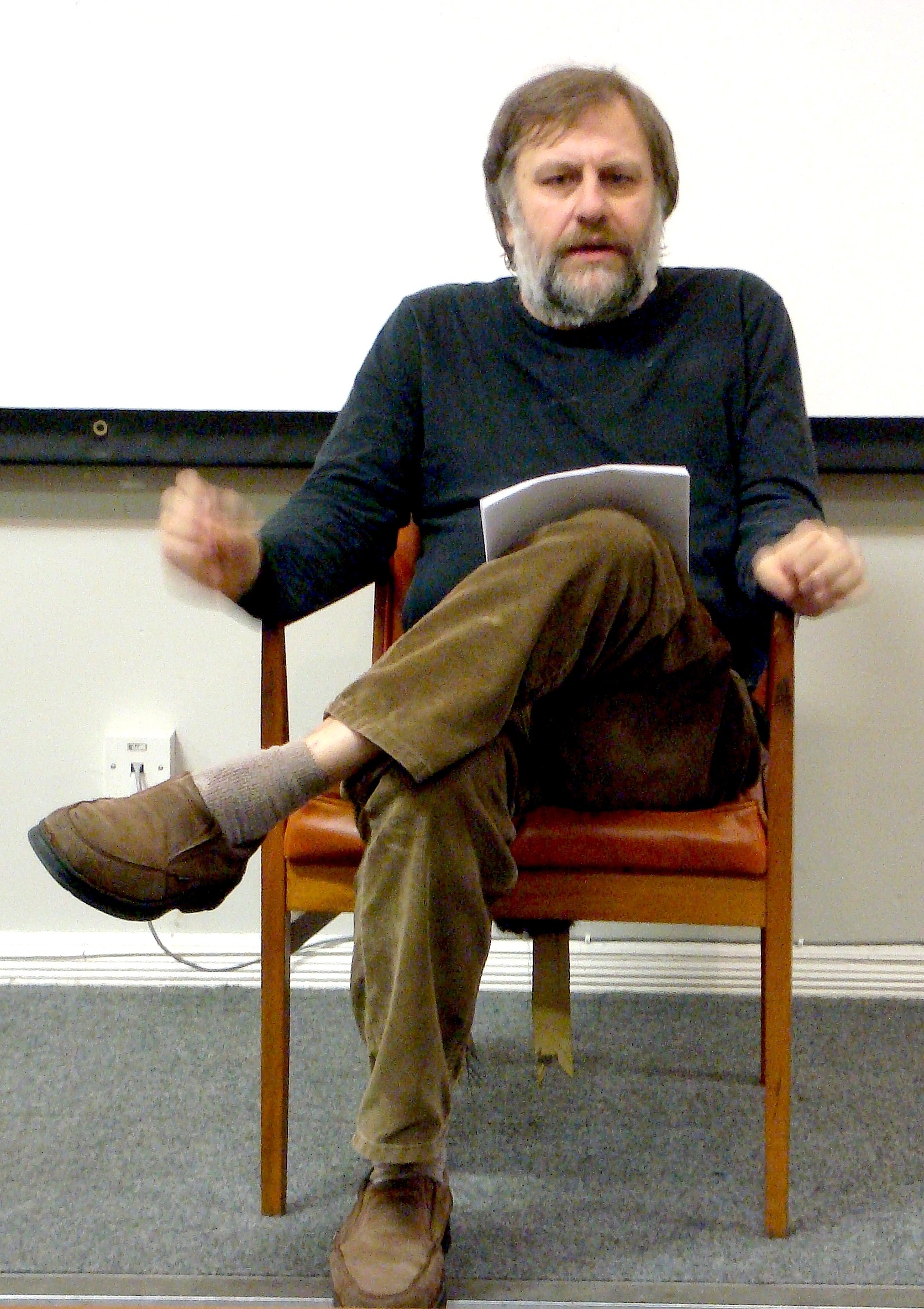
Saturday, November 19, 2011
Preeminent Philosopher Slavoj Žižek speaks @ #Occupy Wall Street

Friday, February 26, 2010
Abortion bill in Utah sparks discussion on political representation
Utah Bill Criminalizes Miscarrage Cleveland Leader
http://www.clevelandleader.com/node/13141
Last week, the Utah House and Senate passed a bill that would make it a crime for a woman to have a miscarriage, and would in most instances make induced abortion a crime. The bill still needs the signature...
Tim Wakeham: The problem lies in this false conundrum:
1) Fundamentalist religious factions represent a tiny minority of the overall population but weild some of the largest political and weatlh power due to their influence in the necessary arenas.
2) Despite having the rights, freedoms and numbers necessary to end or obstruct this dominance the disparate demographics that make up the rest of society are unwilling to oppose it whether it be from fear, apathy or a misguided respect for the nature of the fundamentalist's beliefs rather than their actual right to simple have beliefs.
Until the institutions which operate the country are actually representative of the population and people who empower it, there will continue to be this disgusting inequality and discrimination - the worst kind: the condoned and unprotested type.
§
February 25, 2010 at 12:50am - James Robert Foster II: The zealous fundies are a minority, but most people in the USA consider themselves to be Christian, despite that a majority of people don't belong to any congregation or even attend a church regularly. But, most people I talk to about it seem to want to defend it as something that no one should question or tamper with. and that is exploited by the fundies... to the max.
Nietzsche says something in 'Beyond Good & Evil' about how common people of Germany, "feel themselves already fully occupied" and don't bother with religion unless it's necessary, but that, "They are by no means enemies of religious customs; should certain circumstances... require their participation in such customs, they do what is required, as so many things are done--with a patient and unassuming seriousness, and without much curiosity or discomfort;--they live too much apart and outside to feel even the necessity for a FOR or AGAINST in such matters."
(http://www.marxists.org/reference/archive/nietzsche/1886/beyond-good-evil/ch03.htm)
Most Americans, especially in the south, probably feel like they should to be represented by a Christian, rather than the alternatives, and so they think they're getting accurate representation. An accurate representation would be someone say they are a Christian, but doesn't really adhere to a dogma. Unfortunately, some zealots get in there, more often in the south, it seems like, to me. Correct me if I'm wrong.
Tyranny of the majority is nothing new: Look what happened to African Americans, women, the homosexual communities, and of course religious (or non-religious) minorities. If the 'equalization of rights' trend continues, as I hope it will, then it's inevitable that the religious majority will continue to loose power. They really don't need it for anything, and power for its own sake is unjustified.
Education is crucial to combat that crap, and it's no wonder the religious lobby is trying to gain a foothold there as well. I fully support the idea that critical thinking should be taught in elementary schools.
The more people who sound the alarm and point out the illogical nature of laws like this, and the motivations behind them, the more of a chance we have of actually getting some secular representation for secular issues.
§
February 25, 2010 at 2:27am · James Fal: Holy crap you guys are well written! Nietzsche, isn't he some dead guy? Haha. Just kidding. Wow, this is deep thinking.
I have to mention though, on Tim's comment, couldn't you say the same about the fanatical factions on the "other" side?
They (call 'em what you will, secularists, atheists, religion-hating people, leftists, socialists, commies, etc) also represent a tiny minority of the overall population but seemingly have a big mouth and wield some of the largest political and wealth power due to their influence in the necessary arenas.... See More
Am I wrong?
Or are those all different groups who work together with similar goals? Hmmmm...
I do wholeheartedly agree that people should be allowed to simply have beliefs, even if they don't agree with mine. Isn't that what this country was founded on?
And remember, the smallest minority....you. Who's looking out for that minority?
I hope I didn't insult anyone, wasn't intentional.
§
February 25, 2010 at 8:26am James Robert Foster II: I think you could say there are observable instances of dogmatic atheists, comparably as zealous as some religious fundamentalists, but not that they posses equal political and financial leverage.
JFal: "They ... also represent a tiny minority of the overall population but ...wield some of the largest political and wealth power due to their influence in the necessary arenas
Am I wrong?"
Considering that they don't have any political representation on a national level, I wouldn't say they wield a large amount of political power. Some representatives might agree with them on some issues, but there are no openly atheist or agnostic legislators, justices, and as far as I know, there has never been a non-Christian president. They have groups that are attempt to influence political outcomes and lobby for or against certain legislation, but, as was the case with the 'Prop. 8' controversy, it seems the religious lobby has more financial leverage as well. Also, it depends on what specific area we are talking about. Secular interests might overwhelm religious interests in some areas, while the contrary may be true in others.
It would make for an interesting case study. I wouldn't be surprised if there are plenty out there, for certain controversial issues.
JFal: "People should be allowed to simply have beliefs, even if they don't agree with mine. Isn't that what this country was founded on?"
The Constitution clarifies the reason for its creation in its outset, "In Order to form a more perfect Union, establish Justice, insure domestic Tranquility, provide for the common defence, promote the general Welfare, and secure the Blessings of Liberty to ourselves and our Posterity."
If certain beliefs are oppressive these principles, should they still be allowed to be expressed? The source of controversy here, concerning religion, is similar to one of the original criticisms of democratic theory, namely, that democracy allows for people to freely make decisions to do what is harmful to themselves and others, especially in areas where they are not knowledgeable enough or qualified to make important decisions. So we curb this by punishing people for do things like—the quintessential example—yell “FIRE” in a crowded movie theater, even though this is a restriction of their freedom.
JFal: "And remember, the smallest minority....you. Who's looking out for that minority?"
Rhetorically, this question wants the answer, ‘you’, but there might be others looking out for your well-being and livelihood, depending on the situation: Friends, family, co-workers, supervisors, business-partners, doctors, lawyers, police-officers, and also social welfare organizations, educational organizations, public service organizations, labor unions, watchdog groups, etc.
After all, if it weren’t for some of these types of organizations, we wouldn’t be afforded the liberties, much less the luxuries, into which we were born.
Also, I might come to the conclusion that I was not acting in my own best interests, or even had engaged in some activity that was detrimental to me. In many cases we might say it’s our right to do these things and defend that right, but, in others, we might appreciate someone intervening to stop us from making that bad decision. For example, I was free to choose to buy my first car, but I would have appreciated someone stopping me, even if I had made up my mind that no one could. In other words, I wouldn’t mind it being illegal for the car dealership to be prohibited from using unethical/misleading sales techniques and selling me a car for $7,000 over the sticker-price, at such a high-interest rate.
Some people criticize these things as restrictions on freedom, which they are. But, it’s not too difficult to determine that one freedom can result in the limitation of another, or maximizing one person’s freedom might mean reducing another’s. In the example I gave, the law would limit the freedom of the car company by denying their freedom from interference in the conduct of business, but also protect my freedom from predatory business practices. But, that’s all strictly from a negative view of liberty.
And while most of use of ‘Liberty’ and ‘Freedom’ in the United States has concerned negative liberty, there’s another approach that focuses on having the resources necessary for self-actualization—positive liberty.
Rousseau puts it this way: “The mere impulse to appetite is slavery, while obedience to law we prescribe to ourselves is liberty." And, much of the struggle of humanity, form the individual to the whole, imo, stems from this conflict between impulse/instinct, and an attempt to control it.
http://plato.stanford.edu/entries/liberty-positive-negative/
As far as the abortion issue is concerned, what would be the motivation for criminalizing it?
Also, is freedom for its own sake a thing of value? Or does it need to be applied to an end to be worth anything?
§
James Fal: James, again, a very well thought out treatise. I have no time to add anything at this moment, possibly later this weekend. Cheers!
§
James Robert Foster II: Cheers to your health. And, may you never be party to an abortion in the state of Utah! But if you are, appeal it!
